The past four years, I have been living primarily in Brooklyn, New York. I moved here to study at Union Theological Seminary, to eventually receive a “Masters of Divinity” and work as a chaplain. After graduating from seminary, and completing my chaplaincy residency the mission was complete. However, the mission was overlaid with significant life changes, including the death of my father, which left me feeling depleted. Unlike most of my chaplaincy cohort, who moved on to other work, I decided to take a step back to have time to process all that had taken place—and more deeply, to find a bit of the spark within myself that I used to know and love. It wouldn’t have done anyone any good to keep chopping through the thick vines of samsara as I had been, calling myself a bodhisattva. All the other bodhisattvas let me know as much. They lovingly said, “Get out of here!”
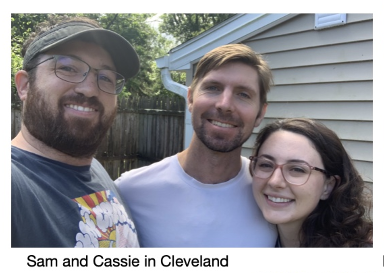
I decided to take a long road-trip, across the country to my homelands of Oregon and California. I was pulled by the gravity of dharma and friendship; and I was pushed by a wish for peace. With the intention to, for a time, put down the struggle. What soon became obvious—as with any (some? all?) retreats or pilgrimages—was the disappointing reality that, “Wherever you go, there you are.”
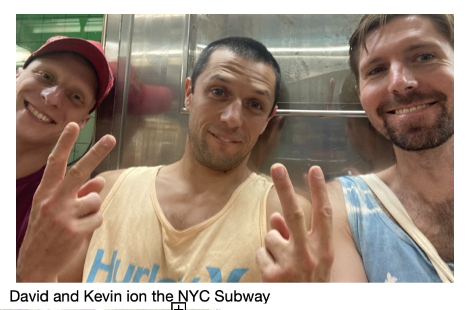
One of the themes that came up quickly while leaving New York, and entering the road trip, is the question: what happens when we have time? I spent many hours looking at the ETA while driving—devising solutions for how to pass the expected amount of time. Often, 7-10 hours. Likely, I spent more time devising solutions than actually implementing them. And time passed anyways. Several days in this earlier part of the roadtrip, I would set out to leave, only to be stopped or slowed down by a torrential downpour. “Go slower,” the universe whispered.
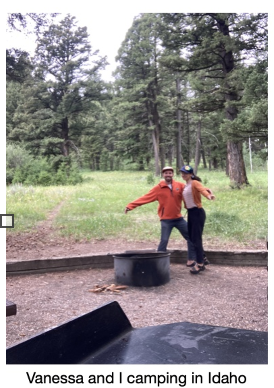
And then, what happens when we have time, with friends? What is it like to feel like there is enough time? I recall seeing movie promotion for James Bond while riding the subway to work— No Time To Die was the name of the film.This felt just like the energy of the city. Who has to time to die around here? Most of the time, we see nothing of death or sickness. Let alone look at our own. I am waiting for the train, looking at my phone. There is no time for this. No Time to Die say the faces and bodies of so many of us bustling about. Leaving the energy of the city, I came to find so many kind presences that could sit and listen, share and be heard. Which, in some way, feels like a celebration in itself. Listening to and celebrating each others’ existence.
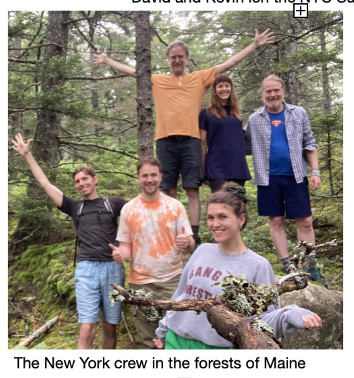
With the intention of heading West to Oregon, I first went… East. I drove up to Maine, and a small part of sweet spiritual community I have been a part of in New York City. One of these friends owns a small house on Acadia Island, and there we had a small retreat of rest and healing, and much fun. We sang songs and prayed, but mostly we hiked and played. It was the quick reset before the long reset. I even got to see my childhood friend, Celine O’Malley, who would meet me at the swing set at the elementary school between our houses.
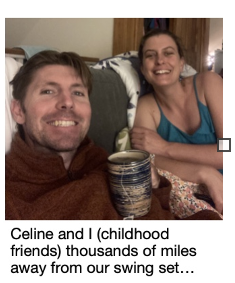
I left from Maine and started driving West. Ultimately I would drive about 3,000 miles from Acadia Island, Maine, to our Dekeling retreat near Otis, Oregon. I stayed with family in Trumansburg, New York, hometown friends in Cleveland, a family motel in Colfax, Iowa, and in the beloved Medicine Bow mountains of Wyoming. I visited a college friend and her family in Logan, Utah, and re-met a fellow road-tripper in the middle of Idaho. In Oregon, I stayed with a dear friend turned organic farmer in La Grande, and then with my dear friends, Eric and Maggie in Corbett. (Many of whom are pictured here)
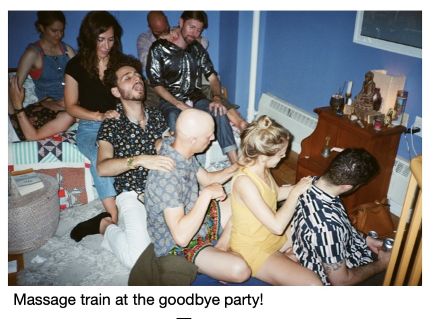
And everywhere in between, I found kindness. I recall a conversation with a worker at REI, telling me about his happiness for his daughter who moved to Colorado. And a conversation with an old mechanic friend in Oregon, who affirmed that if my car broke down, “I’d just come and get you.” In the driving, and in the decision-making, I encountered the spaces where my Dad used to support me. Especially across the Mid-West, I encountered these spaces as empty. Or perhaps not empty, but new. I grieved in my confusion as I drove West, but was constantly caught by the kindness of new and old friends. I felt very alone, but found myself to be very supported. Often not knowing where the next day would take me, I would ask for advice or connections from friends, and find that between the nurturing Earth and good ol’ interdependence, there’s almost always a bed waiting. Learning to ask, and learning to receive, and learning to meet this new life. The road-trip, pilgrimage, whatever we may call it, is a practice in walking out of the comfort zone, into the unknown, and finding that we’re still here. That kindness is still here. Thousands of small decisions to nourish life and notice how each road leads to the next one.
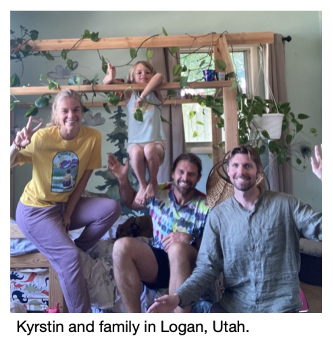
And, there is a mutuality in being caught. At least, I hope. To arrive into the home of a friend who lives hundreds or thousands of miles away. To witness the new manifestations of their life, the comings and goings, feeds the reality of our mutual lives. Most precious to me, I found, was being a part of the morning routine, as kids get ready for school, or work needs to get done. The enchantment of being a new visitor fades into the reality of daily life. Learning to look at the small moments.
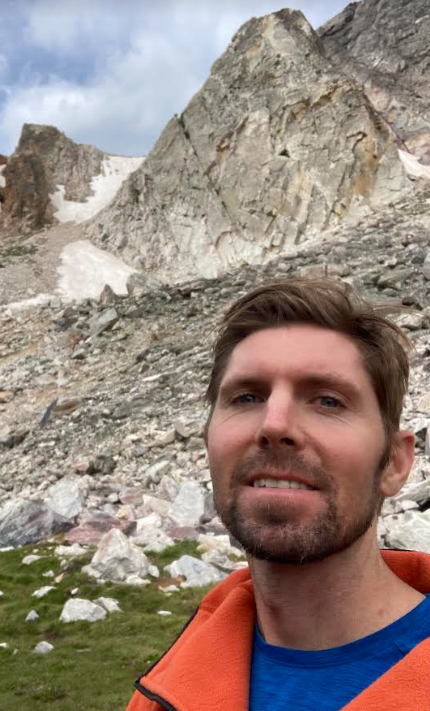
Thomas Walker is a Dekeling community member living in Brooklyn, New York. He has practiced Zen in Oregon at Blue Cliff Zen Center and at Great Vow Zen Monastery, where he met Lama Lekshe in 2018. He recently completed his training as a chaplain at Mount Sinai in New York, and also loves making music with friends.
